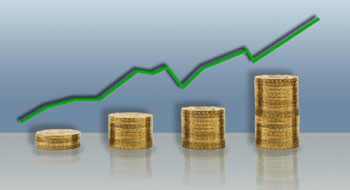

There’s a sunny outlook for the U.S. economy, which may be positioned to outperform in 2011, according to Laurentian Bank.
The U.S. economy has already recovered “all economic activity lost during the recession,” and is building upon that base, says Sébastien Lavoie, assistant chief economist at Laurentian Bank Securities.
“Two events that occurred recently in the U.S.—the introduction of fiscal stimulus and the program to purchase $6 billion worth of Treasury bonds—have positioned the American economy favourably,” Lavoie says.
The U.S. government will soon have to rein in its stimulus spending, he warns, as Congress approaches it’s legally mandated borrowing limit. But Lavoie says the Federal Reserve could roll out a third round of quantitative easing until job growth picks up.
“Without the creation of new jobs,” underlines Sébastien Lavoie, “American banks will not be very enthusiastic about granting loans. Ultimately, we expect the U.S. economy to show vigorous growth of 3.2% this year, which is slightly higher than the rate of 2.9% it posted in 2010.”
Emerging market concerns
Investors who are still focused on emerging markets should be warned of the impact that food price inflation could have on those economies, where a larger percentage of household incomes go toward food costs.
China, India and Brazil—darlings of the emerging market investor—have been hit with inflation rates of between 4% and 9%, prompting interest rate hikes by their central banks.
“The potential of emerging countries will not be derailed because of the monetary normalization underway. It will simply slow the pace of their growth slightly,” Lavoie says, suggesting that Canadian investors may want to maintain their commodities exposure.
But if investors should be circumspect toward the emerging markets, outright caution is urged for European investments, where sovereign debt levels are bound to dry up government spending and drive taxes higher.
The U.K. has already lapsed back into recession, while Germany’s economic strength is propping up overall continental GDP growth.
So, what’s in store for Canada?
Despite the troubles in Europe, investors should bear in mind the minimal exposure the Canadian economy has to the Old World. The upturn in the U.S. economy will boost growth in Canada, with exports to our neighbour expected to grow at their fastest pace since 2004.
Canadian economic growth will moderate, declining from 3% to somewhere between 2% and 2.5%, as household spending moderates. The upside here is that there will be less pressure on the Bank of Canada to raise interest rates. Lavoie expects the overnight rate target will edge toward 2% by the end of 2011 and 2.75% by the end of 2012.
